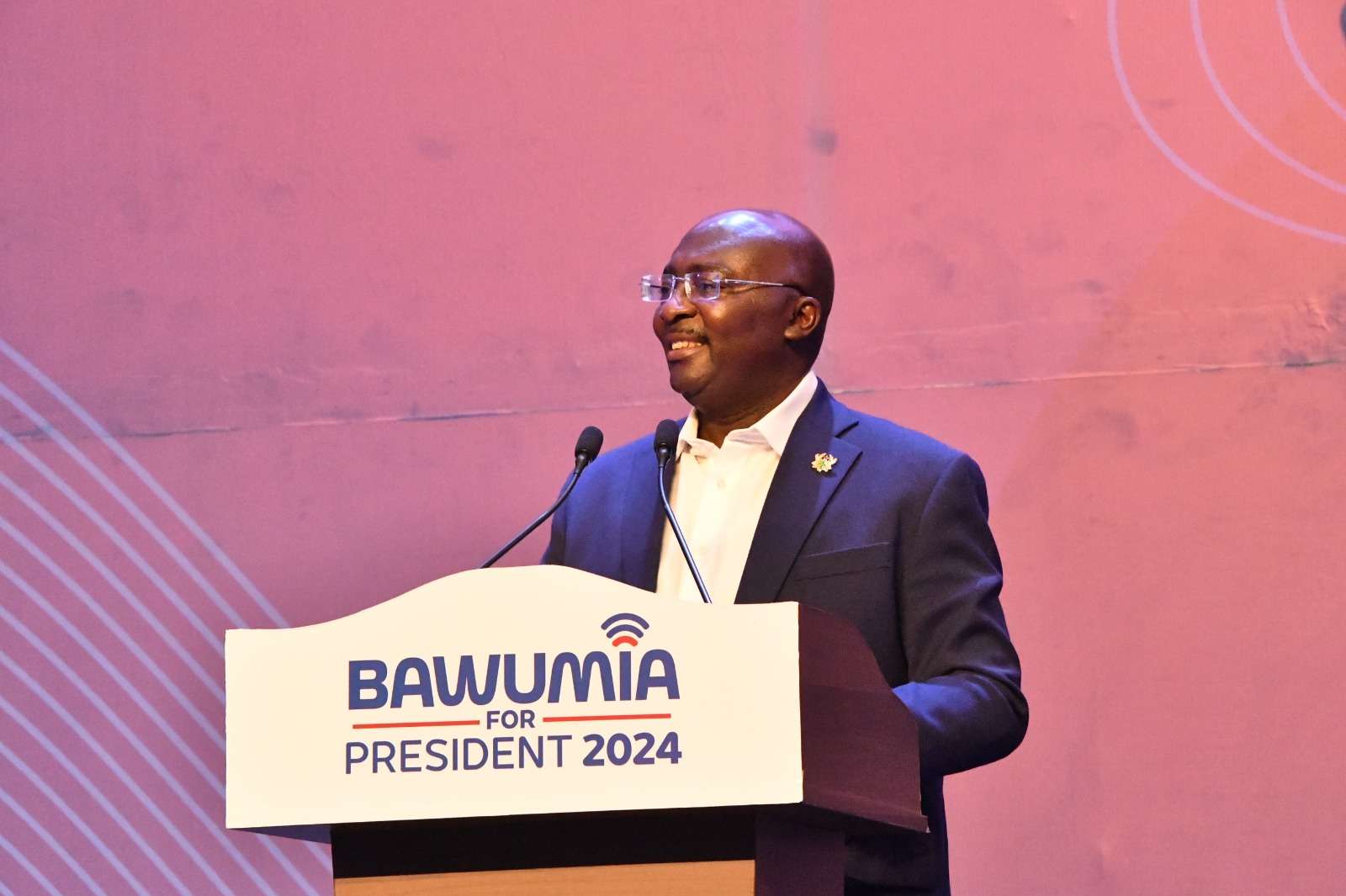The Vice President and Flagbearer of the NPP, Dr. Mahamudu Bawumia, says Ghana will have a new, “friendly” flat tax regime when he is elected President.
Addressing the nation in Accra on Wednesday February 7, 2024 to outline his vision and priorities for Ghana, the NPP flagbearer said in order to enhance businesses, especially small and medium enterprises, (SME’s), which he said, constitute the majority of the Ghanaian business community, there is the need to reform the tax system to their advantage, and also encourage the payment of the new friendly taxes, which, he said, will boost the national coffers.
“My administration will introduce a very simple, citizen and business friendly flat tax regime. A flat tax of a percentage of income for individuals and SMEs, which constitute 98% of all businesses in Ghana, with appropriate exemption thresholds set to protect the poor,” Dr. Bawumia declared.
Dr. Bawumia also noted that, with digital reforms to boost online filing of tax, tax returns should be completed in minutes.
“With the new tax regime, the tax return should be completed in minutes! We will also simplify our complicated corporate tax system and VAT regime.”
Dr. Bawumia also stated that, to start the new tax system on a clean slate, “My government will provide a tax amnesty, i.e. a complete exemption from the payment of taxes for a specified period and the waiving of interest and penalties, up to a certain year to individuals and businesses for failures to file taxes in previous years so that everyone will start afresh.”
“Tax digitalization will be implemented across all aspects of tax administration. Everyone will be required to file a very simple tax return electronically through their mobile phone or computer. There will be no manual or paper filing of taxes from 2025. Faceless assessments will provide transparency and accountability,” he added.
The NPP Flagbearer also stressed that with the new system, there will be no need for GRA to send officers to go sit in shops and monitor proceedings in order to collect taxes, adding that E-invoicing, as being implemented by the GRA, will be extended to all companies.
“Any audits by GRA would also be done electronically and facelessly by GRA. Furthermore, no entity would be audited more than once in five years unless anomalies are detected which the individual or company does not correct after being given the opportunity to do so.”
Dr. Bawumia also said his government will amend the law such that if there is a dispute about tax assessment, a binding arbitration will take place through a body constituted by institutions such as the Ghana Arbitration Center, Institute of Taxation, AGI, Institute of Chartered Accountants, PEF, and Ghana Employers Association with a mandate to resolve any appeal in a maximum of three months.
“This will not affect companies who by their agreements have such arbitrations taking place in international jurisdictions,’ he assured.
Dr. Bawumia also announced that his government will abolish e-levy, the tax on electronic payment transaction, to enhance a cashless system, as well as the emissions tax, tax betting on and the proposed 15% VAT on electricity tariff.





































